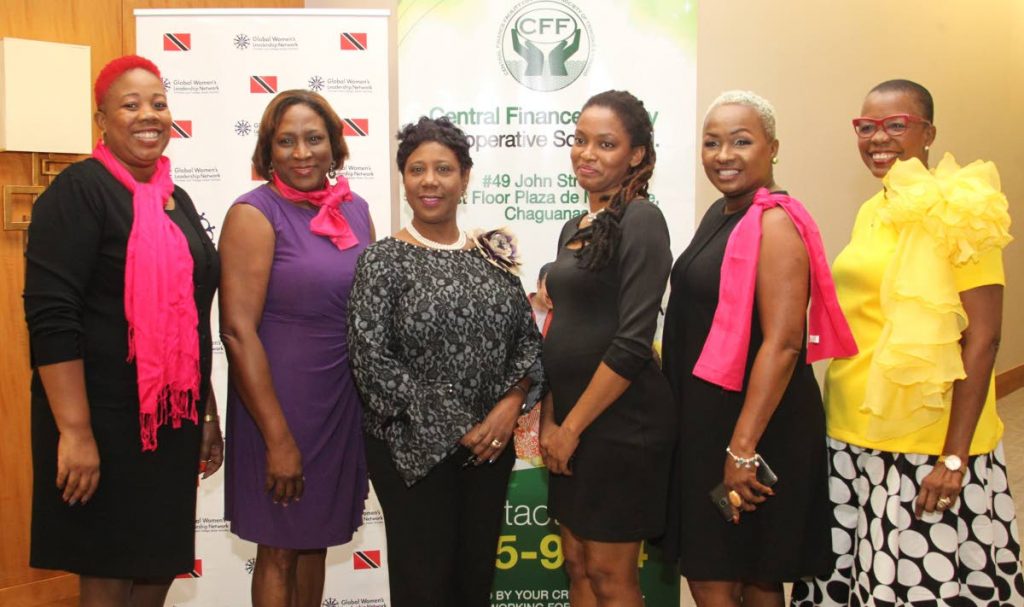More women needed in TT leadership

Speaker of the House Brigid Annisette-George yesterday lamented the fact that while TT celebrated several "firsts" where women reached lofty positions, the reality was they were sorely under-represented in leadership and governance.
She said with the assumption of its first female President Paula-Mae Weekes, the emergence of not just the first female Opposition leader and prime minister Kamla Persad-Bissessar, also the appointment of Claire Fitzpatrick as the first female regional president of bpTT and the installation of the Very Reverend Shelly-Ann Tenia, the Anglican diocese's first female dean and the Holy Trinity Cathedral's first female rector, women were still being left behind.
She said when one looked at local government representation, consequent upon the 2013 local government elections, there was a 20 per cent representation of female mayors or chairmen.
"I am saddened to report that the local government elections of 2016 saw two female mayor/chairman. They are Arima mayor Lisa Morris-Julien and Diego Martin Regional Corporation chairman Susan Hong, about 14 per cent female representation. In the credit union movement, the inclusion of women on your boards amounted to only 34 per cent."
Annisette-George, speaking yesterday at the Central Finance Facility's International Women's Day Event at the Hyatt Regency, Port of Spain, said while the credit union movement, from its inception, seemed to have taken the view that gender equality was intertwined with economics, the world of finance and trade had been gender neutral which had resulted in women being left behind.
She added that credit unions had a significant role in being the rule changer in establishing the balance.
She said while polls showed that TT's working population in the age group 15-64 years with figures as close as 455,148 men and 429,900 women, that ratio was in no way reflective of the numbers of women in leadership and governance.
The Rochdale Society of equitable pioneers which developed the philosophy of self-help and independence had, as early as 1844, among its rules that both sexes were to have equal membership rights, and each member was to have one vote.
Annisette-George said the glaring discrepancy came from the green paper which stated, "Both women and men have demonstrated considerable leadership at the level of community and informal organisation. However, despite the significant impacts made by women in the fields of business, industry, finance, law, media, port, religion, art and culture, leadership at the highest levels remain a man's world.
"Gender is falling short of your mandate and the realisation of bringing about a balance for better. Gender is everybody's business so even if we are increasing the numbers of women exposed to training and developing, that is not sufficient."
She said the UN Women's facts showed that women were generally paid less than men, bore a disproportionate responsibility for unpaid care and domestic work. She added that women were less likely than men to have access to financial institutions or have a bank account, less likely to be entrepreneurs and faced more disadvantages starting businesses.
She said the attainment of balance for better gender mainstreaming must be implemented and that gender mainstreaming must be incorporated in any creditable training programme.

Comments
"More women needed in TT leadership"